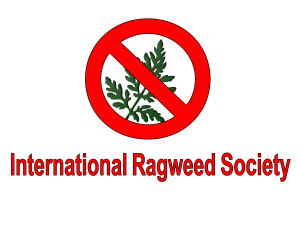Observed annually on the last Saturday of June, International Ragweed Day is dedicated to raising awareness about the impact of ragweed, an invasive plant that significantly affects global health and agriculture. Ragweed pollen is a major cause of seasonal allergies, affecting millions of people worldwide. This day aims to educate the public, promote preventative measures, and encourage collaborative efforts to manage and control the spread of ragweed.
Understanding Ragweed:
Ragweed is a hardy, invasive plant native to North America but now found in many parts of the world, including Europe, Asia, and Australia. It thrives in disturbed soils and can quickly colonize new areas, making it a formidable foe for agriculture and native ecosystems. The plant produces vast amounts of pollen, which can travel hundreds of miles on the wind, leading to widespread allergic reactions.
The pollen from ragweed is one of the most common allergens, triggering symptoms such as sneezing, runny nose, itchy eyes, and asthma exacerbations. For those with severe allergies, ragweed pollen can significantly impact quality of life, limiting outdoor activities and increasing healthcare costs.
The Impact of Ragweed:
The presence of ragweed has numerous consequences, including:
- Health Concerns: Ragweed pollen is a leading cause of hay fever (allergic rhinitis) and can aggravate asthma and other respiratory conditions. The allergy season, typically from late summer to early fall, can be particularly challenging for those affected.
- Economic Costs: The healthcare costs associated with treating ragweed allergies are substantial. Additionally, the agricultural impact, including reduced crop yields and increased management costs, further strains economies, especially in affected regions.
- Environmental Impact: Ragweed competes with native plant species and can disrupt local ecosystems. Its ability to spread quickly and thrive in various conditions makes it a persistent problem for conservation efforts.
The History of International Ragweed Day:
International Ragweed Day was established to draw global attention to the challenges posed by ragweed. By fostering international cooperation and sharing best practices for managing and controlling the plant, the day aims to mitigate the health and environmental impacts of ragweed.
Objectives of International Ragweed Day:
The primary goals of International Ragweed Day include:
- Raising Awareness: Educating the public about ragweed and its effects on health, agriculture, and the environment. Awareness campaigns highlight the importance of identifying and managing ragweed to reduce its impact.
- Promoting Research: Encouraging scientific research into effective methods for controlling ragweed, including biological control, chemical treatments, and habitat management. Research is crucial for developing sustainable solutions to manage ragweed populations.
- Encouraging Preventative Measures: Advocating for policies and practices that help prevent the spread of ragweed. This includes promoting the use of ragweed-resistant crops, encouraging proper land management, and supporting public health initiatives.
- Fostering Collaboration: Facilitating collaboration between governments, health organizations, agricultural sectors, and environmental groups to develop comprehensive strategies for managing ragweed.
How to Participate in International Ragweed Day:
Individuals, communities, and organizations can contribute to International Ragweed Day in various ways:
- Learn and Educate: Educate yourself and others about ragweed, its identification, and its impact. Share information through social media, community events, and educational materials.
- Support Research and Initiatives: Donate to or volunteer with organizations focused on managing ragweed and supporting those affected by its pollen. Support research efforts aimed at finding effective control measures.
- Implement Control Measures: If you own land or work in agriculture, implement best practices for ragweed control. This includes regular monitoring, proper land management, and using appropriate control methods to reduce ragweed populations.
- Advocate for Policy Change: Encourage local and national governments to adopt policies that address the spread and impact of ragweed. Advocate for funding and support for public health initiatives related to allergen management.
International Ragweed Day serves as a crucial reminder of the widespread impact of ragweed on health, agriculture, and the environment. By raising awareness, promoting research, and encouraging collaborative efforts, we can work towards mitigating the challenges posed by this invasive plant. As we observe International Ragweed Day, let us commit to taking proactive steps to manage ragweed and support those affected by its pollen, fostering a healthier and more resilient world.








